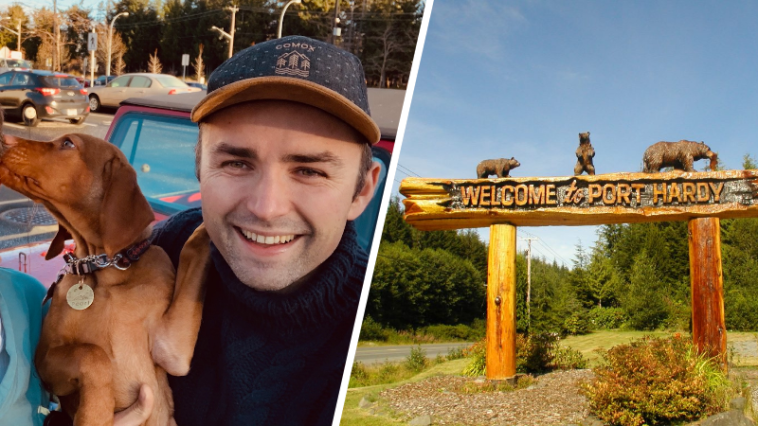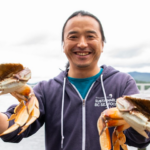Dr. Alex Nataros is the new resident doctor of Port Hardy and has begun writing a regular column for the North Island Gazette where he discusses issues of healthcare, the community, and general well-being.
We sat down with him during his busy schedule to ask him about his recent move to Port Hardy, what he loves about the coast, and the biggest issues facing healthcare providers and patients in rural areas.
What drew you to doing rural medicine?
As a first-year medical student at McGill, I volunteered with the Native Friendship Centre of Montreal and did a lot of street outreach work and otherwise. And there I saw how a lot of Indigenous patients from northern reserve communities were coming to an urban setting where often they were facing challenges. But they had to come because we weren’t able to meet their healthcare needs in the rural and remote setting, and it was often very disruptive to their lives.
So I ended up doing a pediatric rotation in Val-d’Or, which is kind of like a Prince George Central Northern referral community in Quebec, and then in Mistissini, in northern Quebec, which is a James Bay Cree community.
How did you end up in Port Hardy?
I was familiar with the North Island, and over the years I’d met a number of people living off their boats in that area. And for me, it became a dream of mine to eventually live off my boat. So I bought a sailboat and then moved and lived on that for three years in Comox, and did some outreach in communities and islands on the inside of Vancouver Island
I relocated to Port Hardy in the past six months. It was partly because of COVID and also because a lot of people are moving from Vancouver to the Island. Comox has become very urban and it just wasn’t a good fit for me. I much prefer to work in a rural, remote area and Port Hardy fits that bill.
Are you still living on a boat?
I still have my boat, but no, I’m on land now.
What are the key challenges you think that are facing rural health care right now?
Historically, and still to the present day, most of the people we train in health care as doctors and nurses come from urban areas. And people that are from urban areas are more likely to go back and work in those urban areas. So we have a deficit there.
The distance in rural areas can be challenging. Often travel conditions get in the way and we have to hold a patient for several days. And that means even if they’re medically unstable, we have to look after them. So it’s a very different skill set from a physician working, say, across from you in the West End of Vancouver.
I spoke with the mayor and Council of Port Hardy last night specifically about this. We’re trying to look at ways to expand our capacity because right now we’ve got a need for seven full-time physicians in Port Hardy and we’ve only got two and a half. Our current model of delivery is not cutting it in terms of the needs of the population.
You’re a natural communicator from what I can see. Do you see that as part of your job?
Oh sure. Healthcare isn’t that complicated, but we’ve got a healthcare system that makes it complicated because there are all these barriers to access. And so my goal with the Gazette column and communications is recognizing that a lot of what I’ve spent ten years training to do can be simplified.
At the end of the day, it’s important to help give people the tools to look after themselves. And at the same time, there’s so much misinformation during COVID on all sorts of medical health issues.
Despite having all the answers at our fingertips, we also have all the wrong answers at our fingertips. And so as physicians, our job is to help patients navigate this. And the broader reach that we can get through engaging social media and traditional media, the more effective we are as physicians.
What are some of the biggest challenges that people face in Port Hardy?
Port Hardy is an industry community, and largely quite poor. There are lots of challenges. There’s a tremendously resilient Indigenous population coming from different traditions. People are dealing with the very real issues of multigenerational trauma, the legacy of residential schools, and the child welfare system.
So my goal is to generate discussion around this so that settler voices and Indigenous voices can come together and learn from one another, and not focus on our differences so much as focus on our commonalities.
What do you like to do for fun?
I’ve got a sailboat and we have maybe some of the best sailing in the world right on my doorstep. Also running every day with my dog and playing ice hockey two times a week here in town. Lots of stuff.




